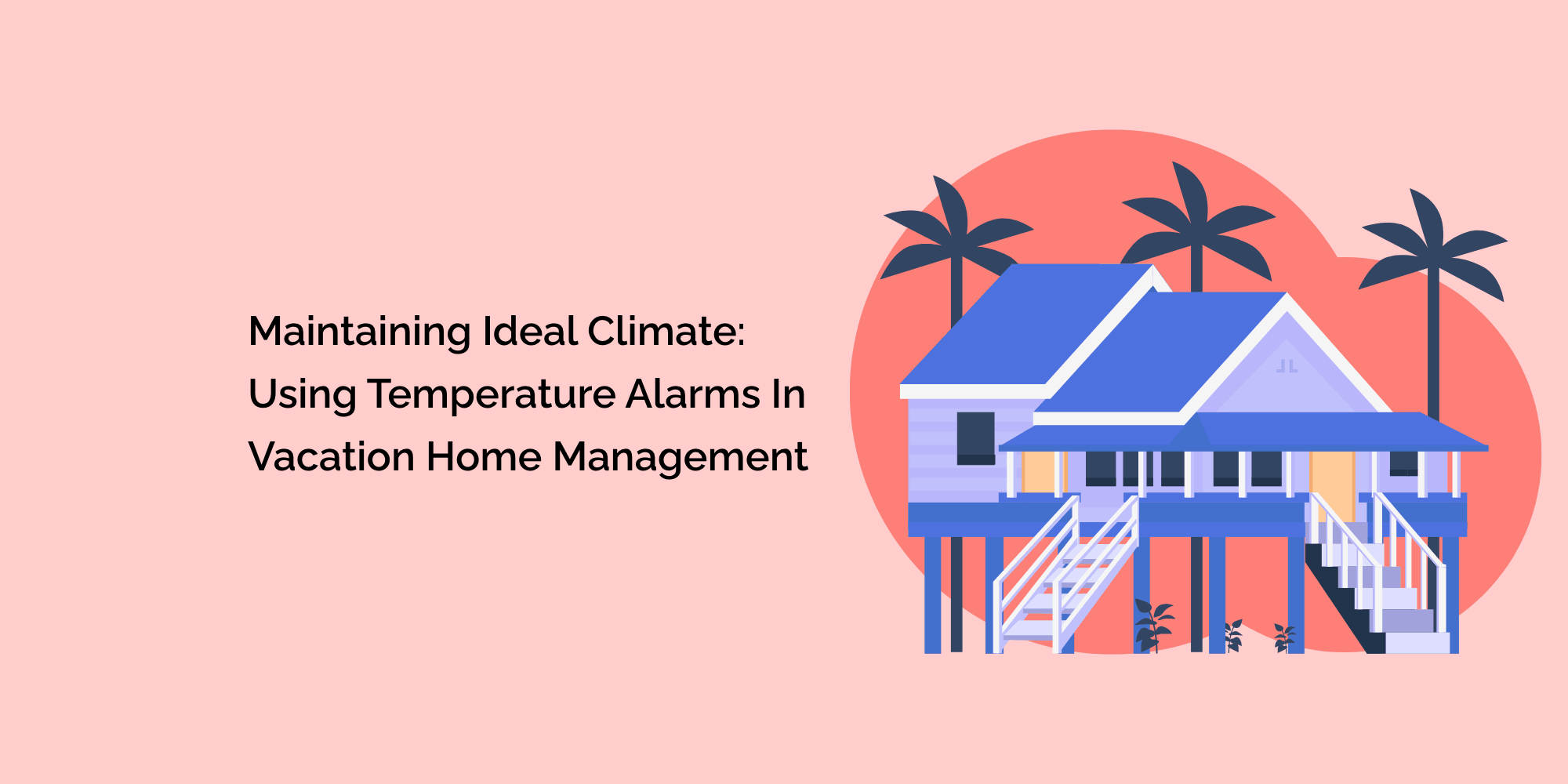Managing a vacation home comes with various responsibilities, and one of the most critical aspects is maintaining the ideal climate within the property. Temperature fluctuations can lead to property damage, discomfort, and unnecessary expenses. To ensure the optimal climate control of your vacation home, temperature alarm systems play a crucial role. This blog will explore the significance of using temperature alarms in vacation home management. We will discuss the benefits of temperature monitoring, how temperature alarms prevent property damage, and how they contribute to energy efficiency and cost savings. By implementing temperature alarms, vacation homeowners can enjoy peace of mind, protect their property, and create a comfortable environment for themselves and their guests.
The Importance of Temperature Monitoring in Vacation Home Management
Temperature monitoring is an essential aspect of vacation home management. Fluctuations in temperature can lead to various issues, including damage to furniture, electronics, and artwork. Additionally, extreme temperatures can impact the structural integrity of the property. We will discuss the potential risks of inadequate temperature control, such as burst pipes, mold growth, and diminished indoor air quality. We highlight the importance of temperature monitoring and emphasize the need for proactive climate management.
Understanding Temperature Alarm Systems
Temperature alarm systems are designed to monitor and alert homeowners about temperature deviations in real time. These systems consist of temperature sensors strategically placed throughout the vacation home, controllers or data loggers, and alert mechanisms such as audible alarms, mobile notifications, or emails. We will delve into the functionality of temperature alarm systems, including their accuracy, customizable temperature thresholds, and the benefits of real-time monitoring and alerts.
Preventing Property Damage with Temperature Alarms
Temperature alarms serve as an early warning system, helping homeowners prevent property damage in their vacation homes. We will discuss how temperature alarms can detect and alert homeowners to extreme heat or freezing temperatures that can lead to structural issues, water damage, or mold growth. By taking immediate action upon receiving an alert, homeowners can mitigate potential damage, prevent costly repairs, and ensure the longevity of their vacation property.
Ensuring Energy Efficiency and Cost Savings
Temperature alarms protect the property and contribute to energy efficiency and cost savings. We will explore how temperature monitoring allows homeowners to optimize heating, ventilation, and air conditioning (HVAC) systems. By setting temperature thresholds and receiving alerts, homeowners can adjust temperature controls remotely, reducing energy waste and lowering utility costs. We will also discuss the long-term cost savings achieved by preventing property damage, avoiding expensive repairs, and maintaining the value of the vacation home.
Remote Access and Control
Many temperature alarm systems offer remote access and control features, allowing homeowners to monitor and adjust temperature settings from anywhere using their mobile devices or computers. We will discuss the benefits of remote access, including monitoring temperature levels while away, making necessary adjustments to climate control systems, and receiving real-time notifications if temperature thresholds are exceeded.
Integration with Smart Home Automation
Temperature alarm systems can be integrated with intelligent home automation, enhancing convenience and efficiency. We will explore how integrating intelligent home systems allows homeowners to automate temperature control based on predefined schedules, occupancy detection, or weather conditions. This integration ensures the vacation home maintains an ideal climate without constant manual intervention.
Choosing the Right Temperature Alarm System
Selecting the right temperature alarm system is crucial for effective vacation home management. We will discuss factors to consider, such as the accuracy of temperature sensors, adjustable temperature thresholds, remote access capabilities, ease of installation and use, compatibility with existing systems, and budget considerations. By evaluating these factors, homeowners can choose a temperature alarm system that aligns with their needs and enhances climate control in their vacation homes.
The Future of Temperature Alarm Systems
This section will explore the evolving technology and advancements in temperature alarm systems. This may include artificial intelligence, machine learning algorithms for predictive analysis, and increased connectivity with other smart devices. We will discuss how these advancements can further optimize climate control in vacation homes and improve energy efficiency.
Certainly! Here are some frequently asked questions (FAQs) about temperature alarms and their role in maintaining the ideal climate in vacation homes:
What is a temperature alarm system for a vacation home?
A temperature alarm system for a vacation home is designed to track the property's temperature levels. It includes temperature sensors, controllers or data loggers, and alert mechanisms to provide notifications when temperature thresholds are exceeded or dropped below-desired levels.
Why are temperature alarms important for vacation home management?
Temperature alarms are essential for vacation home management because they help maintain the ideal climate within the property. Fluctuations in temperature can lead to property damage, discomfort for guests, and increased energy consumption. Temperature alarms provide real-time monitoring and alerts, allowing homeowners to take proactive measures to ensure optimal temperature conditions in their vacation homes.
How do temperature alarms contribute to preventing property damage?
Temperature alarms contribute to preventing property damage by providing early detection of extreme temperatures. Whether it's excessive heat or freezing temperatures, temperature alarms alert homeowners to potential risks such as structural damage, burst pipes, or mold growth. Homeowners can immediately mitigate the risks and prevent costly repairs by receiving timely notifications.
Conclusion
Temperature alarms play a vital role in vacation home management by ensuring optimal climate control, preventing property damage, and promoting energy efficiency. By monitoring temperature levels, homeowners can proactively mitigate potential risks and create a comfortable environment for themselves and their guests. Implementing a temperature alarm system offers peace of mind, as homeowners can remotely monitor and control temperature settings, receive real-time alerts, and optimize energy consumption. With the ability to integrate with intelligent home automation, temperature alarms provide convenience and efficiency in managing the vacation home's climate. By choosing the right temperature alarm system and staying abreast of technological advancements, homeowners can effectively maintain the ideal environment in their vacation homes for enhanced comfort, cost savings, and the long-term preservation of their property.








